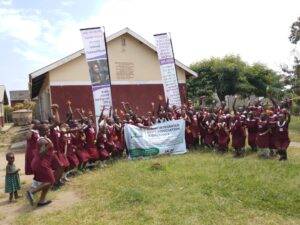From creating safe spaces to challenging traditional norms on FGM in Uganda: A Focus on Kitabu Integrated Development Association

Female Genital Mutilation (FGM) is gradually declining in Uganda, credit to coordinated efforts across multiple sectors. The country has been particularly focusing on addressing Labia Minora Elongation (LME), a harmful practice targeting girls aged 8-14 that is deeply rooted in cultural misconceptions.
These practices persist due to harmful myths suggesting that labia elongation provides benefits such as reduced birth pain, protection from HIV, prevention of rape, and increased marriageability. State Minister of Gender and Culture, Peace Regis Mutuuzo, has been instrumental in challenging these beliefs, emphasizing that girls are sent to schools to be empowered, not prepared for early marriage.
Recognising the complex nature of FGM, Kitabu Integrated Development Association (KIDA) has developed a multifaceted approach to combat these harmful practices. Their strategy centers on comprehensive education, empowerment, and advocacy. They conduct mobile health camps in schools and villages, explaining the health impacts of Labia Minora Elongation (LME) and other forms of female genital modification.
The organization creates safe spaces for young girls, training peer educators and survivor movements to share their stories. By reducing the shame associated with rejecting LME, they help girls understand their human rights and the physical, sexual, and psychosocial problems associated with these practices. Their work extends to sensitization workshops targeting religious and traditional leaders, challenging the cultural sensitivity surrounding LME.
Critically, the organisation involves men and boys in their campaigns, addressing the misconception that such practices enhance sexual pleasure. Through radio and television talk shows, they increase public awareness about FGM and its consequences. They also educate healthcare workers about the physical and psychosocial impacts, helping to reduce discrimination and marginalization of affected girls.
Key Learnings and Insights
The most profound lesson learnt by KIDA is thathat FGM affects entire communities, not just individual girls. Young women often practice these harmful traditions due to cultural norms, peer pressure, and expectations from parents and schools. The solution requires a collective approach involving girls, boys, men, women, survivors, stakeholders, communities, and organizations working together to dismantle harmful norms.
Support Needed to Accelerate Change
With only six years remaining to meet the 2030 target of eliminating FGM, urgent support is crucial. KIDA calls for increased investment in grassroots organisations working directly with communities that practice FGM. Collaboration between government, non-governmental organizations, and community members is essential.
On International Day of Zero Tolerance against FGM, KIDA shares “to every young girl, your body is yours alone. You have the right to make choices, to be beautiful and valuable just as you are, and to seek help and support when needed.”
The path to ending FGM is through education, empowerment, and collective action.
***
The contents of this article are from KIDA, an AWDF grantee partner in Uganda.
